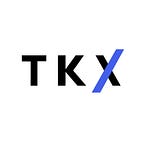Delta-Neutral for Impairment Loss: Logarithm Finance | TKX Weekly
by @Guaaronnnn
editor @uuwagyuu
sponsor TKX CAPITAL
LPDfi, short for Liquidity Providing Derivatives, is a new area in DeFi. Projects here use Uniswap V3 LP positions to create new products like options or perpetual contracts, aiming to improve how liquidity is provided. Today, we’ll explore Logarithm Finance, an LPDfi protocol that helps route LP tokens through different LPDfi protocols to boost yields and bring more liquidity to these new projects, making liquidity management better and simpler.
Intro
Logarithm Finance is a DeFi protocol focused on smart liquidity management and aiding market makers. It introduces two key products, Nautilus Vaults and Liquidity Shell to solve challenges like constant position management and impermanent loss. By addressing these issues, Logarithm Finance simplifies the way individuals earn good returns without the need for continual oversight of their market positions, making market-making and liquidity provision more efficient and rewarding.
Solution
The central challenge in Uniswap V3 LP farming is the frequent rebalancing needed to dodge impermanent loss, often leading to mismanagement. Logarithm Finance tackles this by automating rebalancing, using on-chain perps for hedging against volatile assets, and crafting strategies to amplify APR on a narrow LP range. Through its Nautilus Vaults and Liquidity Shell, it routes liquidity efficiently across LP-centric protocols, promising a stable 12% APR on USDC and directing LP tokens to optimal yields, thereby benefiting both users and LPDfi protocols.
Nautilus Vaults
Nautilus Vaults is the first product launched by Logarithm Finance. Here’s how it works:
- Deposit: You deposit USDC into the vault.
- Liquidity Provision: The vault takes your USDC and provides liquidity on Uniswap V3, automatically finding the best split between liquidity and a hedging position on GMX exchange to reduce price risk.
- Hedging: While your money is in Uniswap, Nautilus Vaults also opens a short position on GMX to hedge against price changes.
- Monitoring & Adjusting: The vault monitors the assets and adjusts positions to maintain balance and ensure profitability, even changing the liquidity range in Uniswap based on market conditions.
- Profits: You earn from the liquidity fees in Uniswap, and the system aims for at least a 12% APR.
- Withdraw: You can withdraw your USDC anytime.
Moreover, as the market fluctuates, the vault changes its strategies to keep earning. It even has a system to manage tiny amounts of tokens left over from transactions to ensure efficiency. Over time, Logarithm plans to make these vaults fully autonomous, adjusting to market data without needing manual intervention, thanks to a special contract called Logarithm Beacon.
Liquidity Shell
Liquidity Shell is a feature within Logarithm Finance that guides users’ LP tokens to the highest-yielding strategies across various LPDfi protocols. It acts like a smart router, directing assets to where they can earn the most. Users can deposit single-sided liquidity and may opt to utilize Nautilus Vault for additional hedging. This function helps users maximize their returns without delving into the complexities of DeFi, thereby simplifying liquidity provision.
Yield Sources
The yield sources in Logarithm are:
- LP fees: Earned from trading fees when providing liquidity on UniV3 or other AMMs.
- LPD premia: Extra yield generated from options created by LPDfi protocols like Panoptic using UniV3 LP positions.
- Logarithm rewards: Additional yield in $LOG tokens provided to incentivize the use of Liquidity Shell.
- Boosted APY by LPDs: Increased net APY as LPDfi protocols buyback and supply $LOG to Logarithm to compete for user liquidity.
Thoughts
Logarithm Finance’s approach, specifically the delta-neutral strategy using Nautilus Vaults, plays an important role in reducing impermanent loss, which is a common problem in providing liquidity. This strategy, along with yield-boosting mechanisms through Liquidity Shell, aims to not only increase returns for liquidity providers but also make substantial progress towards improving capital efficiency and reducing risk in the LPDfi space.
Reference
https://logarithm-finance.notion.site/logarithm-finance/Resources-6a83ffcf95d84e719c3807424f0ee9f6
https://docs.logarithm.fi/logarithm-finance/protocol-overview/introduction
https://twitter.com/logarithm_fi/status/1668502303899365376
https://twitter.com/logarithm_fi
https://twitter.com/logarithm_fi/status/1681872680520241152
https://twitter.com/theDefiSailor/status/1704457079308575018
